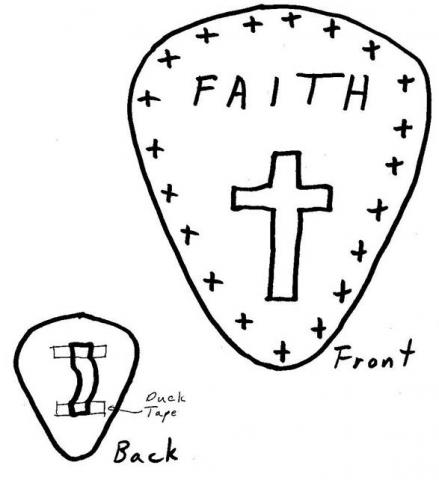James: Wars and Fights
JAMES 4:1
 Scripture verse: “Where do wars and fights come from among you? Do they not come from your desires for pleasure that war in your members?”
Scripture verse: “Where do wars and fights come from among you? Do they not come from your desires for pleasure that war in your members?”
Objectives:
- Students should understand the verse and its context.
- Students should learn about the causes and control of anger.
Background on the book:
This book was written by James, brother of Joses, Simon, and Jude and son of Joseph (Jesus’s earthly father). He did not believe that Jesus was the Savior until after the resurrection, but later became bishop of Jerusalem and presided over the first council. He was known by his countrymen as “James the Just”. While he supported Paul in his work with the Gentiles, James, himself, was a devout Jew and worked mainly with the Jewish church. James wrote this letter to Jewish believers scattered over the world probably around AD 55-60. Later, shortly before the destruction of Jerusalem by the Roman army, James was tortured and martyred by the Sanhedrin.
Possible Lesson Plan:
- Open with prayer.
- Review the background of the book. Who was the author? To whom was it written?
- Scripture lesson: James 4:1-2, Galatians 5:19-25. Read out loud together.
- Anger is part of the human experience. Can you think of some Old Testament people who got angry and did something they later regretted? Brainstorm here: Consider Joseph’s brothers, Moses and the original tablets. What about in history – review the cause of World War I – the entire continent of Europe engulfed in war because the Austrians got angry when a Serb killed their prince. Was it worth the price?
- Have you ever felt angry? Have you just wanted to scream? Do you have a hard time controlling your anger? Why do we get angry? James gives us some answers here: our selfish desires are blamed for our anger. Did you ever get angry because you wanted to get something or have something happen and it didn’t happen? Someone had to be blamed, right? It’s easier to fight for something and demand our rights than to take the need to God in prayer. Don’t we trust God to handle it? What should we do if we don’t get our own way – get angry or get to God?
A – actions that are wrong
N – neglect of doing right
G – grief
E – energy spent in selfish ways
R – relationships that are damaged
- Read Ephesians 6:16: What is our shield against fiery darts? Doesn’t it feel sometimes like you’re on fire when you’re angry? Make an Ephesians shield from heavy cardboard or posterboard. Decorate it with paint or markers. Be sure to identify the source of your protection.
7. Close with prayer.
